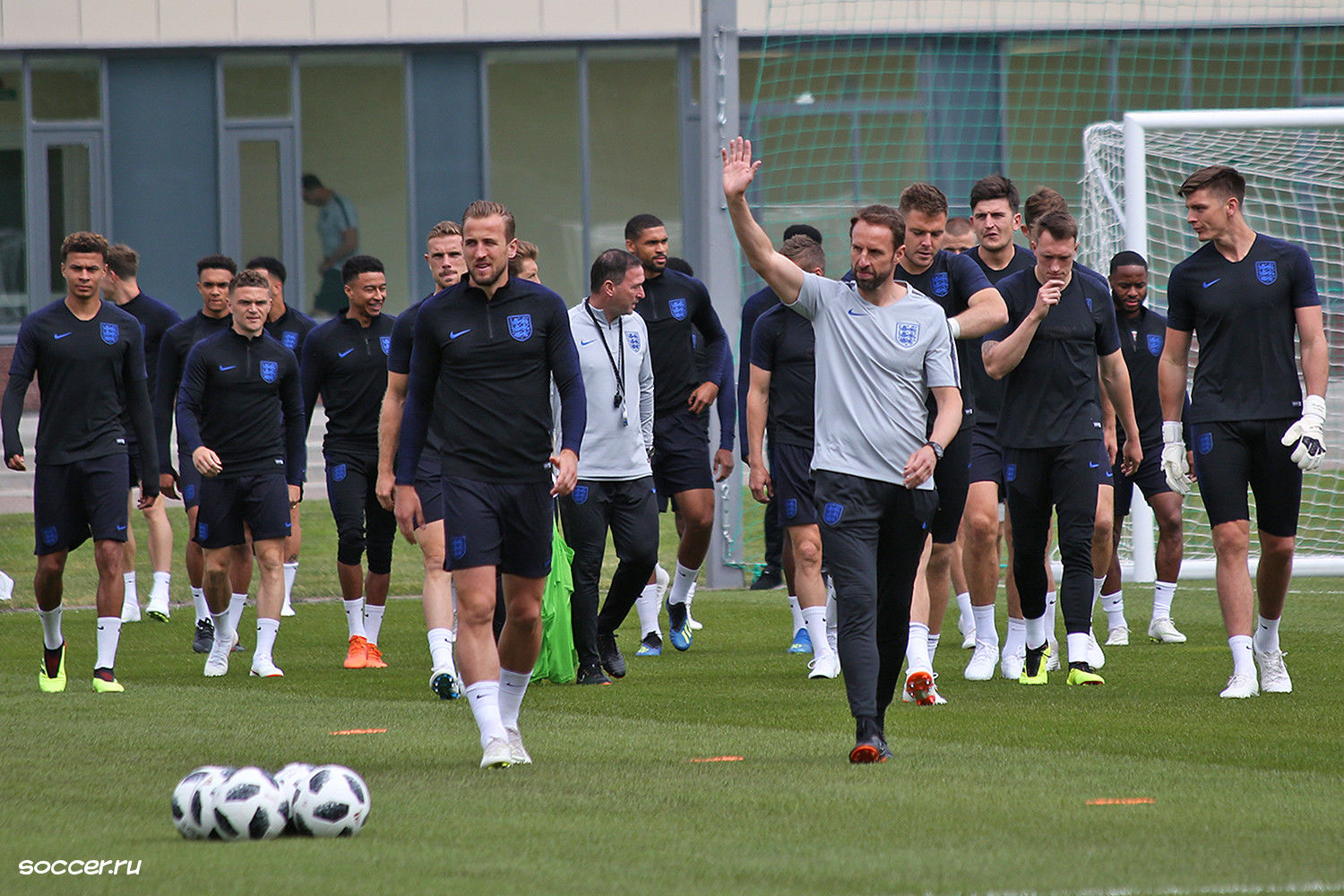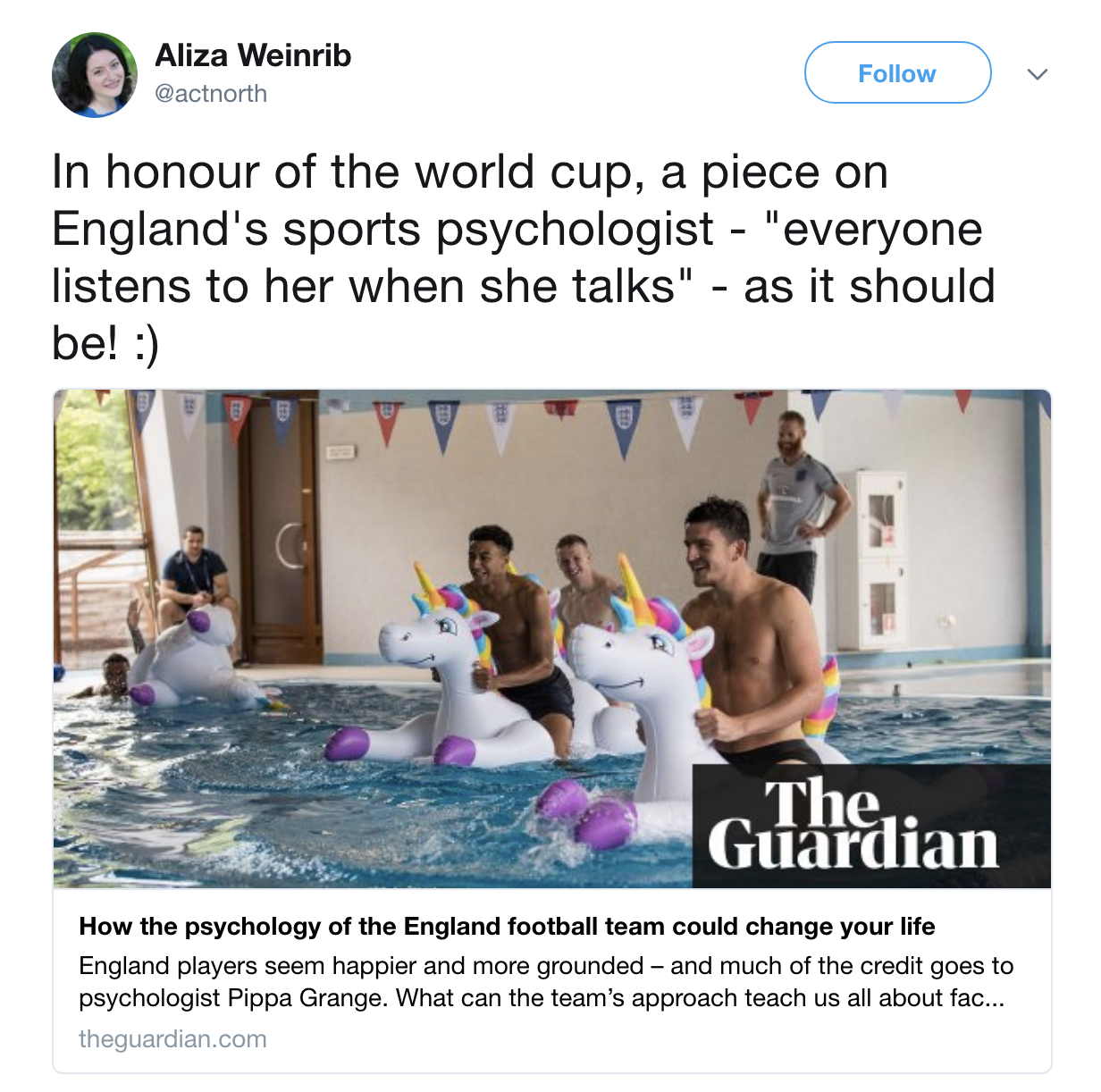Blog
Gareth Southgate’s Management Strategy
Posted by Nigel Ramana – 27.07.18
When Gareth Southgate was appointed England manager in November 2016, there was zero fanfare or expectation. He was simply regarded a safe pair of hands, a down-to-earth character who would never get involved in the type of tabloid scandal that led to Sam Allardyce’s dismissal after just one game in charge.
In a football-loving nation with a frenzied media, the role of England boss has become synonymous with the phrases ‘poisoned chalice’ and ‘impossible job’; no matter how good the early intentions, it always seems to end in disaster.
However, against all odds, and with some astute performance management, Southgate guided his squad to a first World Cup semi-final in 28 years. There’s still room for improvement if they’re going to kick-on and win a major tournament, but the Three Lions have got their bite back.
Here’s what business leaders can learn from Southgate’s strategy:
Succession Planning
When he initially took temporary charge in the wake of Allardyce’s sacking, Southgate had little time to prepare for his first World Cup qualifier. He had been managing the under-21 side since 2013, and was well-respected for his progressive approach, but called upon experienced pros to guide the senior team through ties against Malta, Slovenia and Scotland.
Despite sluggish performances, England topped a relatively easy group. However, once the route to Russia was secure, Southgate started ringing the changes to instill his own philosophy.

Captain Wayne Rooney - England’s talisman for over a decade - had been struggling for form, a shadow of his former swashbuckling self. He officially retired from international football in the summer of 2017, but it’s widely thought Southgate told the 31-year-old he was no longer part of his plans, prompting the decision, allowing Rooney to retire with dignity.
In the run up to the World Cup, other experienced players were dropped. The inconsistent Joe Hart, Theo Walcott and Jack Wilshere all made way, passing the baton to the next generation as Jordan Pickford, Harry Maguire and Ruben Loftus-Cheek were promoted.
That isn’t to say Southgate was intent on getting rid of the old guard, more that he prefers to judge people on form rather than reputation. Indeed, he recalled 32-year-old Ashley Young after four years in the international wilderness thanks to impressive displays for Manchester United, proving ability is more important than age in the workplace.
Lesson: When taking charge of a new team, don’t rock the boat too early with big changes. Take time to see how the land lays, and make educated decisions based on results. You can then form a succession plan that nurtures future talent.
A Winning Environment
As mentioned, the England team has often endured a frosty relationship with the media. An ‘us and them’ culture has been prevalent, with journalists desperate to fill column inches and the Football Association keen to protect their stars, restricting access, holding mundane press conferences with just one or two players were present.
However, Southgate looked to forge good relations with reporters, knowing that having them on-side would ease the pressure on the team.
Before the tournament, he arranged a ‘speed date’ style media day where every player sat around a hall, and journalists were allowed to spend time with each one. It was a huge success, and the goodwill extended to the team hotel, where journalists enjoyed playing darts with the players.
Better to have all parties in good spirits rather than create unnecessary tension.
Downtime between games was also fun, with Head Tennis championships, virtual bike rides and even inflatable unicorn races.

Much of the good-spirited nature in the camp can be attributed to sports psychologist Pippa Grange, who was appointed the FA’s Head of People and Team Development in November 2017.
She has been instrumental in encouraging players to build genuine bonds, sitting in small groups at meal times and getting to know each other on a personal level, learning to open up and trust one another.
This may sound like pretty basic people management, but it’s a far cry from the days of club rivalries undermining the national team, with Manchester United players refusing to mix with Liverpool or Chelsea counterparts, for example.
Is it any wonder the so-called ‘Golden Generation’ of David Beckham, Rio Ferdinand, Steven Gerrard and Frank Lampard, etc., put in such disjointed performances on the pitch and failed to live up to their billing?
Southgate didn’t ban mobile phones or impose strict curfews, as some predecessors had done (the authoritarian Fabio Capello in particular), but, along with Grange’s guidance, he gently ushered in a spirit of unity and collective responsibility, where teammates enjoyed each other’s company and supported one another.
Lesson: Create a culture that has everyone pulling in the same direction, whether they play for Leicester and Tottenham, or work in Sales and Marketing. You should also introduce company benefits that inspire and reward success and recruit experts to take you forward.
Training
Of England’s 12 goals throughout the tournament, 10 were scored from set-pieces (corners, free-kicks and penalties) - the highest number of any nation. This all points to excellent work on the training field; highly-polished routines where everyone knows what’s expected of them.
In the first knockout match against Colombia, England also put to bed the ghost of World Cups past by actually winning a penalty shoot-out.
Southgate’s most infamous moment during his playing career was his missed spot-kick against Germany in the semi-final of Euro ‘96, a fluffed attempt that led to England’s demise.
Some England managers have since refused to practice penalties, insisting you can’t recreate the pressure of a match environment, so there’s no point.
However, Southgate - largely due to his personal torture 22 years ago - made sure England were prepared, holding regular sessions to determine the exact order of penalty takers, and even researching where opposition players were likely to place their spot-kicks, writing instructions on Jordan Pickford’s water bottle.
The effort paid off, as Pickford went the right way four out of five times - crucially saving one - ensuring this team wrote their own history rather than be burdened by pressure of the past.
Lesson: Learn from your mistakes (Southgate didn’t practice penalties before his big miss), and invest in learning and development opportunities if you’re serious about attracting and retaining top talent.
Eyes on the Future
Ultimately, England crashed out to a more experienced Croatia team, but the World Cup rollercoaster united a nation and made people fall back in love with the beautiful game.
There was an undeniable feel-good factor throughout the country, as momentum built and support grew - even from those who wouldn’t necessarily consider themselves football fans.
Can Southgate build on the solid foundations formed in Russia, and use this experience as a springboard for future success? Only time will tell.
What’s for sure is that, rather than have one host nation, Euro 2020 will be played all over Europe, with games in host cities such as Dublin, Glasgow, Rome, and Amsterdam.
The semi-finals and final are due to be played at London’s Wembley stadium so - one way or another - it really is coming home!
Let’s hope Southgate refines his talent strategy even further between now and then.
Posted by Nigel Ramana – 27.07.18
